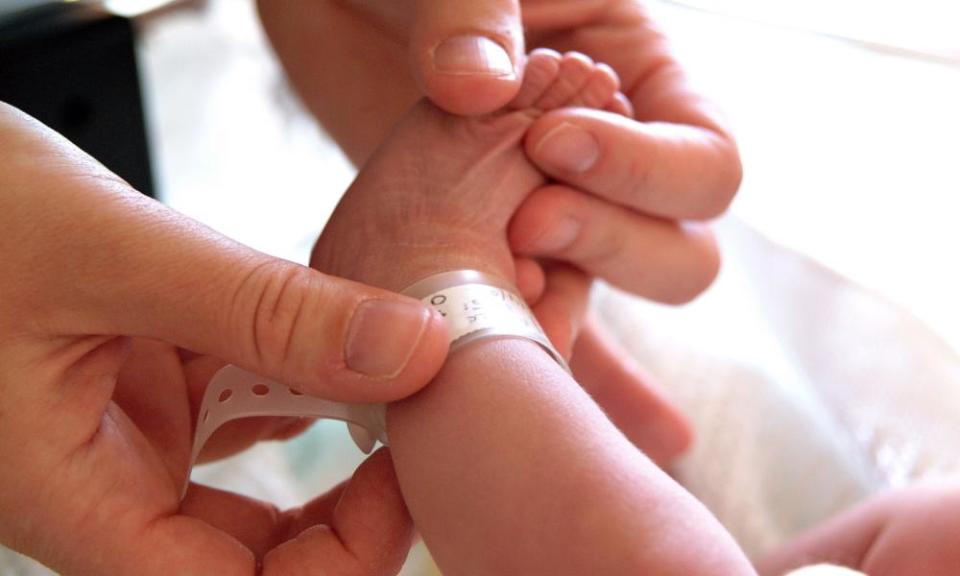More UK infants in hospital amid Omicron wave but experts urge calm

The proportion of infants in hospital with Covid-19 in the UK has risen with the spread of Omicron, figures suggest, although researchers have urged calm, noting most cases are very mild.
The number of Covid-positive admissions, whatever the cause, is expected to rise when there is more infection around, but the latest figures suggest there has been a shift in the proportion of children in hospital with coronavirus who are infants.
The data from the Isaric/Co-CIN study, published on Friday by the Scientific Advisory Group for Emergencies (Sage) and based on a broadly representative subset of NHS hospitals, reveals that in previous Covid waves about 30% of children in hospital with the virus were under the age of one.
Between mid-December and mid-January, however, when Omicron spread rapidly around the country, the proportion was just over 42%, with children from the most deprived areas most affected.
The data does not break down whether infants were in hospital because of Covid or the infection was detected during care for another reason, however, in the second wave the majority of Covid-related infant admissions were because of Covid, experts said.Calum Semple, a professor in child health and outbreak medicine at the University of Liverpool, said infants were generally experiencing very mild symptoms.
default
“I really want to emphasise here the fact that these are not particularly sick infants. In fact, they’re coming in for short periods of time for investigations,” he said. “If we look at those who went on to a high dependency unit, our intensive care unit, again, the proportions have fallen over time.”
A similar trend has been recorded for the proportion requiring oxygen, and the time infants spend in hospital has fallen from almost seven days in the first Covid-19 wave to just under two days.
Dr Camilla Kingdon, the president of the Royal College of Paediatrics and Child Health, said the infants’ symptoms fit withwhat would be expected in a busy winter in the UK. “So we’re not, on the shop floor as it were, picking up any signals that are overly concerning about this,” she said.
Most infants in hospital with coronavirus experience a fever and a cough.
One potential factor behind the shift in proportions could be that older children have been vaccinated, but experts say it is unlikely to fully explain the situation. Even among children under 12, the proportion of infants in hospital with Covid-19 has risen.
Related: Pandemic brought ‘dramatic’ fall in English hospital admissions for childhood infections
“It may just be that because of vaccination and infection having been through the elderly and the younger adults, we may just be seeing a much harder hit in the younger age groups at this point,” said Semple.
Among other tentative explanations, Russell Viner, a professor of child and adolescent health at UCL, said Omicron appeared to affect the upper airways more than previous variants, and younger children have smaller upper airways.
He also suggested Omicron might be more likely to cause fever and cold-like symptoms in younger children than previous variants, and that protective care pathways meant such symptoms might indicate a hospital visit.

 Yahoo News
Yahoo News 